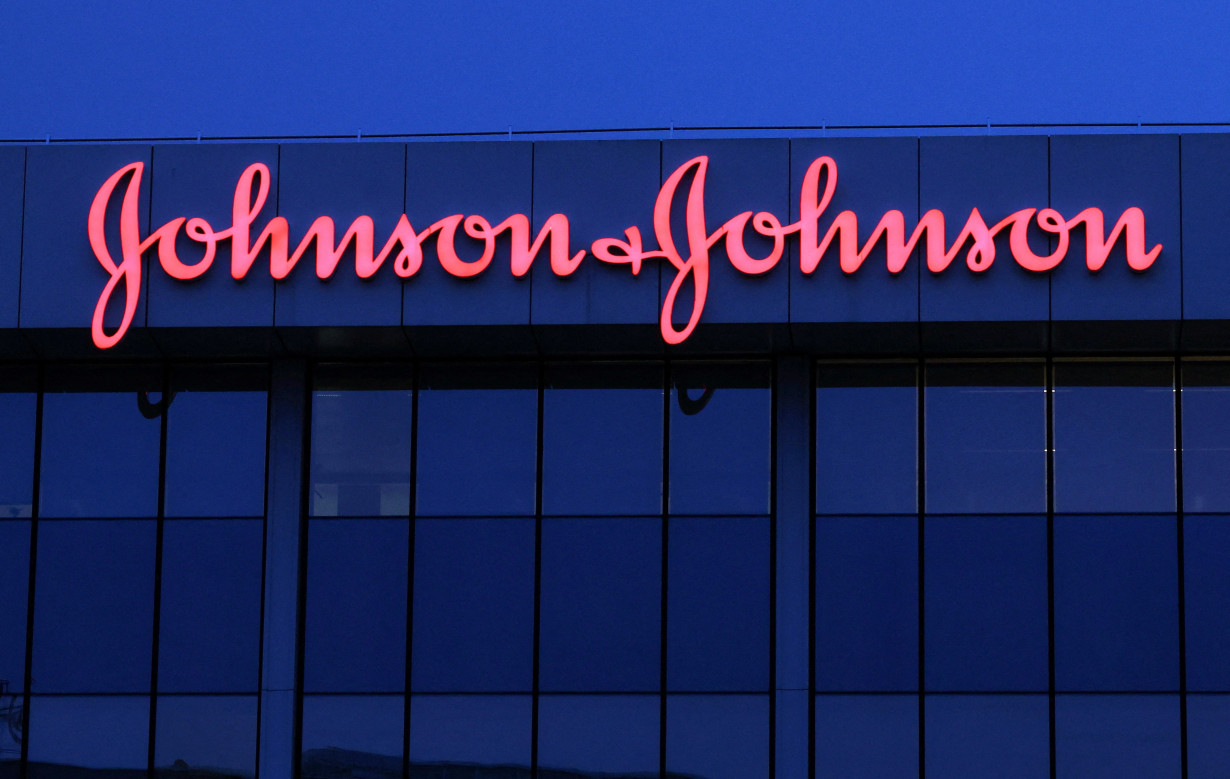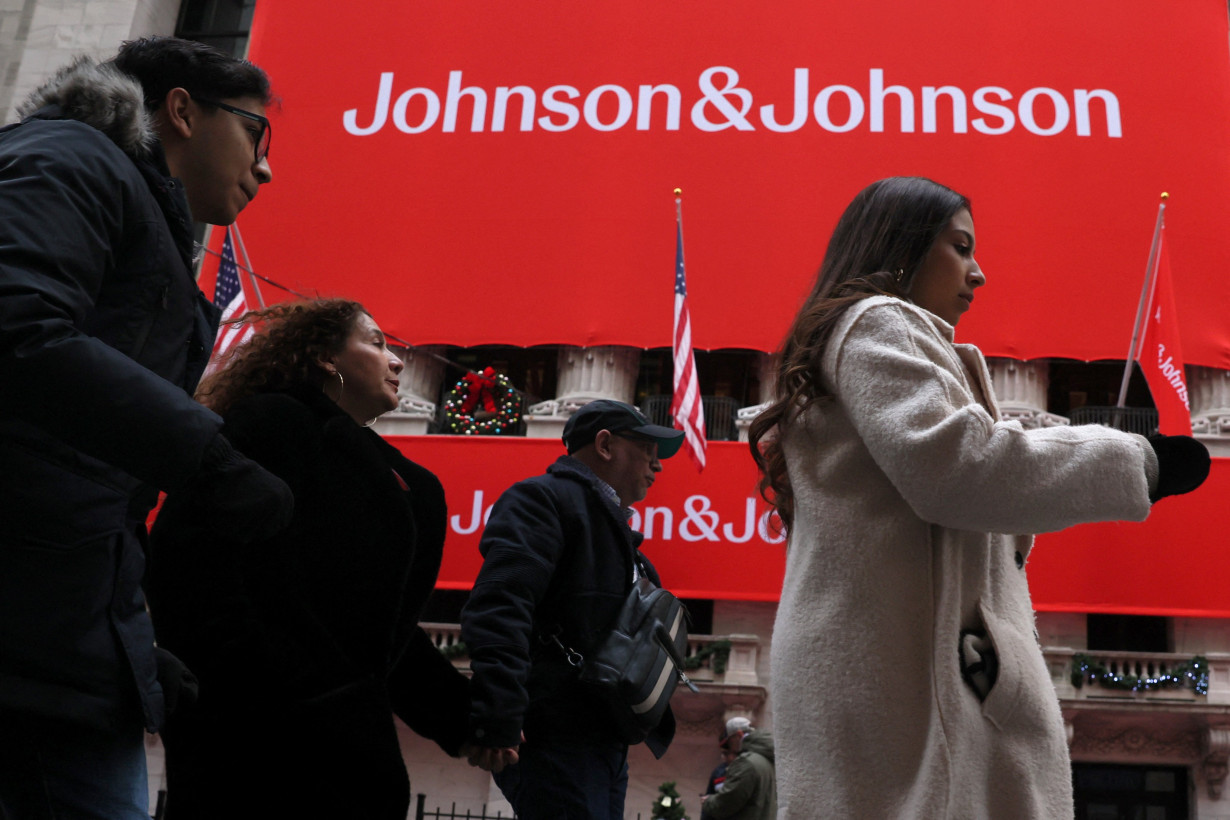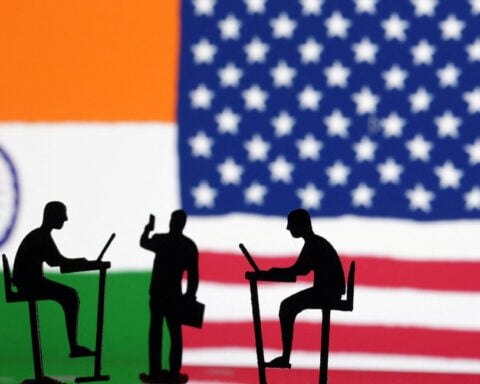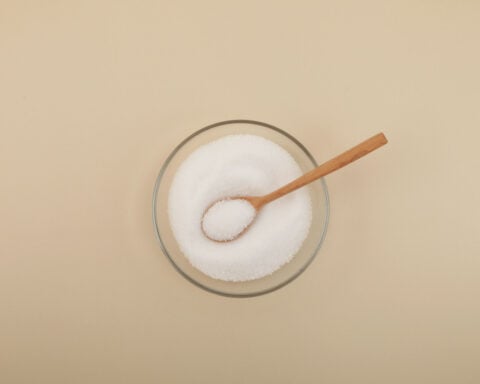By Sneha S K and Patrick Wingrove
(Reuters) - Johnson & Johnson sued Samsung Bioepis for allegedly breaching a contract agreement over its launch of a biosimilar to Stelara, J&J's blockbuster psoriasis treatment.
The lawsuit, filed late on Monday in a New Jersey federal court, involves an unauthorized sublicense deal with a private label provider that J&J declined to identify. The suit seeks a preliminary injunction to bar U.S. sales of the private-label version of Samsung Bioepis' Stelara biosimilar, called Pyzchiva.

Samsung and J&J signed a settlement agreement in July 2023 allowing for the launch of Pyzchiva this month.
Samsung Bioepis and partner Sandoz announced earlier on Monday that Pyzchiva had been launched in the U.S.
J&J in the lawsuit claimed that the agreement did not permit Samsung to introduce an additional private label drug at the expense of J&J market share and fair competition. It also requested a permanent injunction and financial damages as part of its lawsuit.
Samsung Bioepis did not immediately respond to a request for comment on the lawsuit.
Stelara, introduced in 2009, has been J&J’s top-selling drug since 2019, with sales reaching more than $10 billion in 2024.
Its patents began to expire in 2023, opening the door to cheaper biosimilars entering the market. Legal agreements aimed at escaping lengthy patent litigation delayed market entry of Stelara biosimilars in the U.S.
J&J Chief Financial Officer Joe Wolk has said the Stelara biosimilar market was likely to unfurl similarly to that of AbbVie's blockbuster arthritis drug Humira - once the world's best-selling prescription drug - given contracting practices and doctor and patient resistance to switching medicines.
AbbVie held onto almost all of the Humira market for more than a year after close copies of the drug were launched in early 2023. That changed when CVS Health removed Humira from its list of covered drugs and more patients switched to a biosimilar in three weeks than had in the prior 15 months.
CVS, which owns a pharmacy benefit manager that negotiates rebates and fees with manufacturers and creates lists of medications, known as formularies, that are covered by insurance, replaced Humira with a biosimilar that was jointly marketed with its Cordavis unit, a private label provider.
J&J in its lawsuit said Humira's market erosion was illustrative of the harm Samsung Bioepis' private label deal could have.
Stelara biosimilars launched in Europe, Canada and a few other markets last year, and at least seven close copies of Stelara are expected to begin selling in the U.S. this year.
Pyzchiva is approved to treat moderate to severe plaque psoriasis, active psoriatic arthritis, moderately to severely active Crohn's disease and moderately to severely active ulcerative colitis.
Teva Pharmaceuticals and Alvotech last Friday launched Selarsdi, a biosimilar to Stelara. The U.S. Food and Drug Administration has allowed the use of Selarsdi as an "interchangeable" Stelara substitute only after April 30, when the exclusive rights for Amgen's version Wezlana expire.
(Reporting by Sneha S K in Bengaluru and Patrick Wingrove in New York; Editing by Alan Barona and Bill Berkrot)

 Trump has begun another trade war. Here's a timeline of how we got here
Trump has begun another trade war. Here's a timeline of how we got here
 Canada's leader laments lost friendship with US in town that sheltered stranded Americans after 9/11
Canada's leader laments lost friendship with US in town that sheltered stranded Americans after 9/11
 Chinese EV giant BYD's fourth-quarter profit leaps 73%
Chinese EV giant BYD's fourth-quarter profit leaps 73%
 You're an American in another land? Prepare to talk about the why and how of Trump 2.0
You're an American in another land? Prepare to talk about the why and how of Trump 2.0
 Chalk talk: Star power, top teams and No. 5 seeds headline the women's March Madness Sweet 16
Chalk talk: Star power, top teams and No. 5 seeds headline the women's March Madness Sweet 16
 Purdue returns to Sweet 16 with 76-62 win over McNeese in March Madness
Purdue returns to Sweet 16 with 76-62 win over McNeese in March Madness








